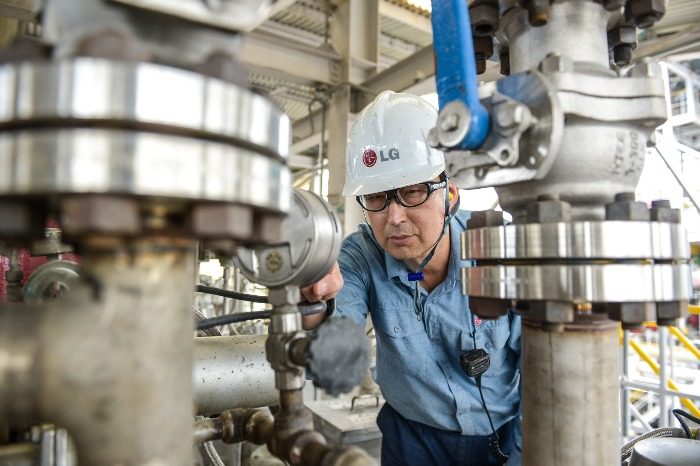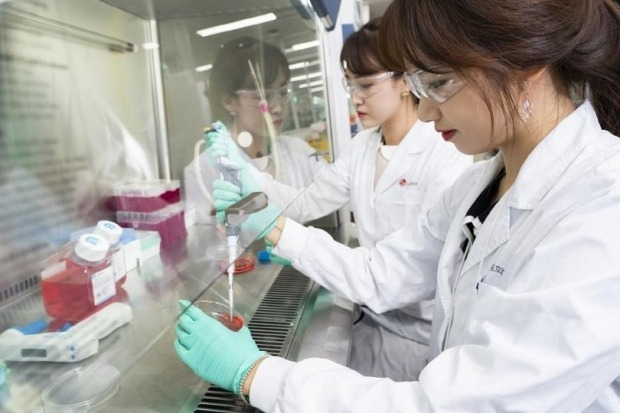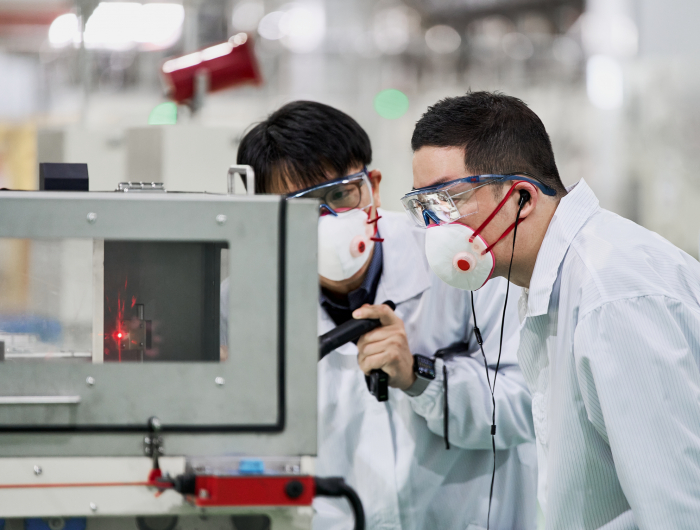Corporate restructuring
LG to slim down petrochem as Chinese rivals creep up
The company will redirect the proceeds of stake, business and plant sales to growth drivers
By Jun 19, 2023 (Gmt+09:00)
2
Min read
Most Read
Hankook Tire buys $1 bn Hanon Systems stake from Hahn & Co.


NPS to hike risky asset purchases under simplified allocation system


Osstem to buy BrazilŌĆÖs No. 3 dental implant maker Implacil


S.Korea's LS Materials set to boost earnings ahead of IPO process


UAE to invest up to $1 bn in S.Korean ventures



South KoreaŌĆÖs LG Chem Ltd. is speeding up restructuring efforts to sell or downsize uncompetitive businesses, with an aim to focus on three growth drivers: battery materials, eco-friendly businesses and new drug development.
Earlier this month, it sold the in vitro diagnostics business of its life science division to Seoul-based Glenwood Private Equity for 150 billion won ($117 million).
Now it is seeking to offload a minority stake in LG Energy Solution Ltd. to raise about 2 trillion won. LG Chem owns 81.84% of LG Energy, the worldŌĆÖs second-largest rechargeable battery maker.
ŌĆ£We will carry out bold and preemptive restructuring for marginal businesses,ŌĆØ LG ChemŌĆÖs petrochemical business head Roh Kuk-rae said in an email message to its employees on Monday.
ŌĆ£We cannot delay restructuring of marginal businesses that are not competitive.ŌĆØ
The restructuring will include suspending facility operations for a longer period of time, withdrawing from some businesses and securitizing assets by selling stakes or establishing joint ventures. That will lead to the redeployment of some employees.

Such moves are part of efforts to brace for the deteriorating macroeconomic environment as LG is grappling with the rising threat from Chinese rivals in the subdued petrochemical market.
ŌĆ£In addition to domestic refinersŌĆÖ entry into the petrochemical industry, Chinese companiesŌĆÖ rush to build and expand oil refining complexes integrated with petrochemical production lines is driving us to a marginal situation,ŌĆØ Roh noted.
ŌĆ£There are an increasing number of products of which the selling prices do not even reach the level of variable costs, so factories cannot operate.ŌĆØ
The petrochemical division has been extending losses. It reported an operating loss of 50.8 billion won ($40 million) in the first quarter of this year, after suffering a 165.9 billion won shortfall three months before. The division has a total of 5,000 employees at home and abroad.
It produces petroleum-based plastic materials such as ethylene, phenol and ABS resins, most of which are now classified as conventional products.
ŌĆ£We decided to shed non-core businesses and focus on new drug development for global markets,ŌĆØ said an LG Chem official.

It is also restructuring its battery materials business by relocating to upgraded facilities.
The LG Group unit is seeking to sell a cathode production factory in Iksan, North Jeolla Province, with an annual production capacity of 4,000 tons of cathode materials.
The Iksan facility is much smaller than its two other domestic plants: one in Cheongju, North Chungcheong Province, with a capacity of 70,000 tons. A cathode factory in Gumi, North Gyeongsang Province, will be completed by the end of this year with a capacity of 60,000 tons.
LG is understood to be looking for a new factory site near its existing facility in Cheongju.
Its three key businesses are expected to generate a combined 40 trillion won in sales in 2030, accounting for 57% of the companyŌĆÖs total sales projection of 70 trillion won the same year.
It plans to spend more than 10 trillion won to expand its cathode production capacity and to develop silicon-based anode materials by 2028.
Write to Jae-Fu Kim and Hyung-Kyu Kim at hu@hankyung.com
Yeonhee Kim edited this article.
More to Read
-
 PetrochemicalsLG Chem to sell $1.6 bn stake in LG Energy to foreign investors
PetrochemicalsLG Chem to sell $1.6 bn stake in LG Energy to foreign investorsJun 19, 2023 (Gmt+09:00)
2 Min read -
 Mergers & AcquisitionsSKC to sell unit to Glenwood PE at $390 mn for future biz
Mergers & AcquisitionsSKC to sell unit to Glenwood PE at $390 mn for future bizJun 13, 2023 (Gmt+09:00)
1 Min read -
 BatteriesLG Chem breaks ground on 4th cathode material plant in S.Korea
BatteriesLG Chem breaks ground on 4th cathode material plant in S.KoreaMay 31, 2023 (Gmt+09:00)
1 Min read -
 BatteriesLG Chem aims higher for battery materials with diverse portfolio
BatteriesLG Chem aims higher for battery materials with diverse portfolioMay 16, 2023 (Gmt+09:00)
3 Min read
Comment 0
LOG IN


